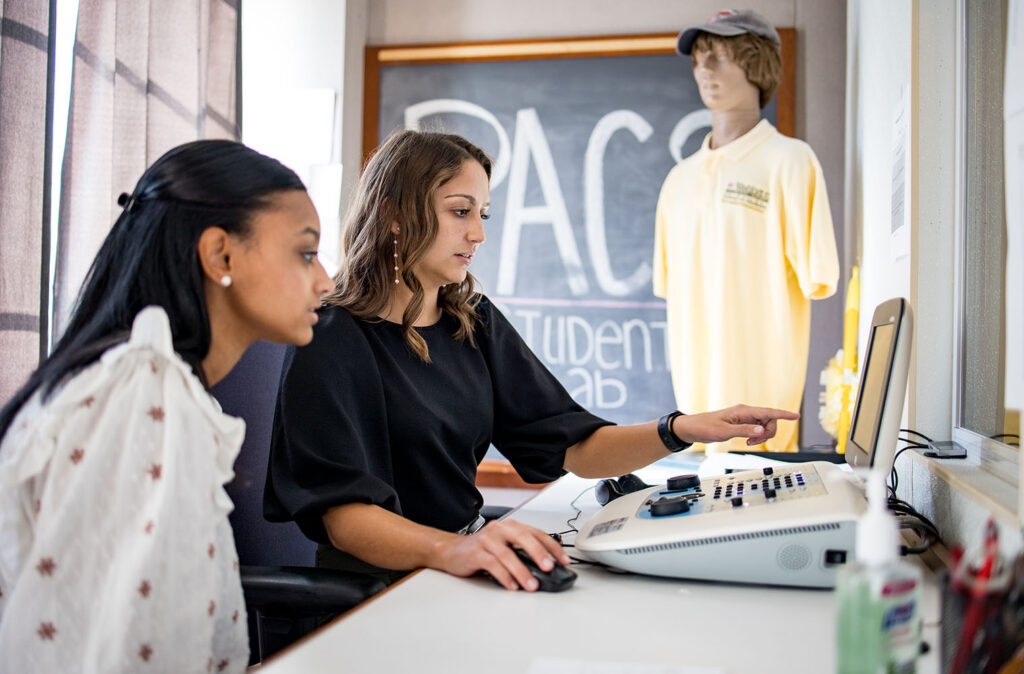
Our PhD in Speech and Hearing Sciences program prepares students for academic and research careers, with students generally focusing on one of three areas: hearing science and audiology, language and education, or auditory neuroscience. Established in 1947, the program operates in collaboration with the Department of Otolaryngology, with research topics including basic science, applied and clinical science and clinical outcomes research. The Department is among the largest and most heavily-funded otolaryngology research groups in the country, consistently ranking among the top nationally in NIH funding.
Program highlights
- An interdisciplinary curriculum tailored to your individual research interests and culminating in a dissertation
- Teaching experiences supported by faculty mentorship and pedagogical training
- Immersive research work within the Department of Otolaryngology and its affiliated labs, including opportunities to publish and attend professional conferences
Who should apply?
Before beginning a PhD program in speech and hearing sciences, we recommend completing a master’s degree in a related field and/or relevant research.
Please note that it is not necessary to contact or identify a faculty mentor before applying, and doing so does not guarantee admission or funding. If you have specific questions about how your academic background and research interests align with our PhD program offerings, please email us at pacs@wustl.edu.
Funding
PhD students receive full tuition remission and an annual stipend. Please visit our Funding Opportunities page for more information.
Detailed application information »
AuD/PhD Program
Students who have dual interests in clinical audiology and research can pursue the AuD and PhD in a combined program. Enrolled AuD students are eligible to apply for PhD admission in the fall semester of their second year, with enrollment beginning in the third year of study. The remaining AuD coursework is completed in parallel with PhD coursework over an extended period of time. An individualized study plan is developed for each AuD/PhD student based on their background and interests. For students completing both degrees, the externship can be completed over two years on a part-time basis when combined with part-time coursework/research as part of the PhD program. The AuD is then awarded when those degree requirements are complete, with the student continuing enrollment in the PhD program. This model offers the benefit to students of receiving the AuD degree before both degree requirements are completed, up to 48 hours of transfer credit applied from the AuD to the PhD, and additional funding opportunities as a PhD student.
Students completing the AuD and PhD generally also complete the Summer Research Program and the Research Specialization during their AuD studies.